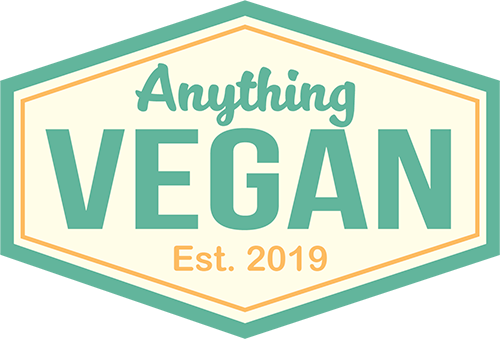Best Ingredients for Healthy Vegan Dog Food: What to Include and What to Avoid
The Ingredient Revolution in Canine Nutrition
The quality of dog food has never mattered more. As awareness grows around allergies, obesity, and environmental sustainability, pet owners are shifting toward healthy vegan dog food a cleaner, cruelty-free alternative that supports wellness without compromising nutrition.
But there’s one key truth: “vegan” doesn’t automatically mean “healthy.”
A balanced vegan diet for dogs requires precision the right proteins, fats, and micronutrients in the right proportions. The best vegan dog foods are thoughtfully crafted using nutrient-dense plants, high-quality oils, and targeted supplements that mimic the essential nutrients found in meat.
Understanding which ingredients to include and which to avoid is essential to giving your dog optimal nutrition, strong immunity, and vibrant energy.
Understanding Canine Nutritional Needs
Dogs are omnivorous by nature. They can thrive on plant-based food as long as it provides complete and balanced nutrition. A healthy vegan dog food should deliver:
-
High-quality plant proteins for muscle maintenance.
-
Healthy fats for brain, skin, and coat health.
- Complex carbohydrates and fibre for digestion and energy.
-
Essential vitamins, minerals, and amino acids for growth and immunity.
When these nutrients come from wholesome, plant-based sources, they can nourish dogs as effectively as traditional diets without the allergens and additives found in many meat-based formulas.
Powerhouse Ingredients That Define Healthy Vegan Dog Food
Pea Protein: The Core of Canine Strength
Pea protein is the foundation of many vegan dog foods. It’s rich in lysine and arginine essential amino acids for muscle repair, energy production, and metabolism. It’s also hypoallergenic, making it perfect for sensitive or allergic dogs.
Lentils and Chickpeas: Gentle Energy and Gut Support
Lentils and chickpeas provide slow-release carbohydrates, keeping blood sugar stable and digestion smooth. Their high fibre content supports gut bacteria, reduces bloating, and helps maintain a healthy weight.
Brown Rice and Oats: Wholesome Carbohydrates
These grains provide easily digestible energy and natural prebiotics that support intestinal health. They also help prevent the digestive discomfort some dogs experience with corn or refined grains.
Coconut and Flaxseed Oils: The Skin & Brain Boosters
Healthy fats are vital. Coconut oil supplies quick energy through MCTs (medium-chain triglycerides), while flaxseed oil delivers omega-3 fatty acids that soothe itchy skin and promote a shiny coat.
Sweet Potatoes and Pumpkin: Nature’s Digestive Aids
These ingredients are antioxidant powerhouses packed with beta-carotene, vitamins A and C, and gut-friendly fibre. They’re especially beneficial for dogs prone to constipation or food sensitivities.
Algae Oil: Vegan Source of Omega-3
Fish oil has long been used for coat and joint health, but algae oil offers the same DHA and EPA minus the fish. It’s a sustainable and allergy-free option that supports brain, eye, and joint function.
Essential Supplements: The Finishing Touch
- Taurine & L-Carnitine: Maintain heart and muscle strength.
- Vitamin B12 & D3 (from plant sources): Essential for metabolism and nerve function.
-
Zinc, Iron, and Calcium: Build bone density and immune resilience.
Ingredients to Avoid in Vegan Dog Food
Just as important as knowing what to include is recognising what to avoid. Some “vegan” foods cut corners with fillers and additives that can harm your dog’s health.
Artificial Preservatives and Colours
Additives like BHA, BHT, and ethoxyquin extend shelf life but have been linked to liver and kidney stress. Artificial colours add no value they’re purely cosmetic.
Added Sugar and Salt
These lead to weight gain, dehydration, and strain on internal organs. Dogs don’t need sugar natural carbohydrates provide all the glucose they require.
Cheap Fillers
Corn gluten, cellulose, and refined flour inflate the calorie count without adding real nutrition. They also cause inconsistent stools and bloating.
Excess Soy Protein Isolate
Soy can be nutritious in moderation, but cheap isolates used as bulk fillers can upset digestion and interfere with hormonal balance in some dogs.
Reading Labels Like a Pro
Learning to read ingredient labels is one of the most empowering things you can do as a pet owner.
-
Check the first five ingredients: They make up the majority of the food. Look for whole, identifiable items like “pea protein” or “brown rice”, not vague terms like “plant extract.”
-
Look for supplements: Taurine, L-carnitine, and B12 should always appear in the list.
-
Avoid excessive binders: Gums, starches, and fillers can cause digestive sluggishness.
-
Transparency equals trust: The more detailed the ingredient list, the higher the product’s integrity.
A well-labeled vegan dog food should sound like something you’d happily eat yourself clean, natural, and nutritionally purposeful.
Balancing Homemade Vegan Dog Meals
For owners who prefer to make food at home, balance is everything.
Here’s a simple framework:
-
Combine two complementary protein sources (e.g., lentils + quinoa).
-
Add a source of complex carbs (brown rice or oats).
-
Include omega-3 fats (flaxseed oil or algae oil).
-
Don’t forget supplements — taurine, B12, and calcium are musts.
Homemade meals can be rewarding, but must be guided by a vet or certified canine nutritionist. Without professional input, nutrient gaps can appear quickly.
FAQs
Q: What are the best ingredients in vegan dog food?
Pea protein, lentils, brown rice, sweet potato, flaxseed oil, pumpkin, and added taurine.
Q: Which ingredients should I avoid?
Artificial preservatives, added sugar or salt, soy isolates, and synthetic dyes.
Q: Is vegan dog food as nutritious as meat-based food?
Yes when properly fortified with amino acids, vitamins, and essential fats, it meets or exceeds nutritional standards.
Q: Can homemade vegan dog food replace store-bought options?
Only with proper supplements and veterinary guidance to ensure balance.

